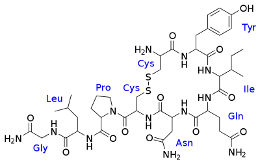I’m reading Philip K. Dick’s sci-fi Do Androids Dream of Electric Sheep. The opening scene of the book has a couple waking up on a future earth with its futuristic equivalents of the alarm clock, the morning coffee, and the couple squabbling about the snooze button.
Among their morning options is what mood to dial in to start the day. You can dial in a little thalamic stimulant if you need to assert yourself, or a thalamic depressant if your rage is getting in the way of your plans. Or you can get more precise:
| dial | for |
|---|---|
| 481 | awareness of the manifold possibilities open to me in the future; new hope |
| 594 | pleased acknowledgment of husband’s superior wisdom in all matters |
| 888 | the desire to watch TV, no matter what’s on |

If you have a hard time getting up the gumption, dial a simple “3” which will induce the desire to choose a dial setting. You can even dial in despair, if, say, you’ve been overdoing affectless detachment and need a change of pace.
I told you that, so I could share this:
Oxytocin is the molecular reason why people thrive on hugging, Twitter and other people in general. Oxytocin production facilitates pair bonding and mother-infant attachment by making sex, as well as breastfeeding, feel good.
Oxytocin is relevant to tax policy because it affects people’s decisions to contribute to the funding of public goods, a basic goal of taxation. For example, oxytocin has a remarkable influence on the impact of prisoner’s dilemma games. In these games, one player’s decision to share value with other players can create more value overall, but only enriches the first player if others also share with him or her. Winning such a game thus requires cooperation and reciprocity. Zak’s research has shown that an infusion of oxytocin (for example, administered through nasal inhalation) increases players’ generosity. Oxytocin doses have also been shown to increase levels of charitable giving, though study participants had a greater tendency to give to organizations benefiting “in-groups” of which they were members.
Oxytocin infusions might also increase citizens’ willingness to fund public goods through tax compliance, particularly if taxpayers perceived that their tax payments would benefit their in-groups. Of course, the government cannot distribute nasal inhalers along with Forms 1040. But it could try to increase taxpayer oxytocin levels nonpharmacologically, by presenting tax compliance as part of a trusting and reciprocal relationship. But what reciprocal relationship should the government try to trigger? There are at least three possibilities: (ⅰ) taxpayer-government reciprocity, (ⅱ) taxpayer-taxpayer reciprocity framed by cooperative funding of public goods, and (ⅲ) taxpayer-taxpayer reciprocity presented as a more intimate personal connection, for example with the help of an advertising narrative.
[I]t may be possible to use stories and narratives to frame the duty of paying taxes as a gift that you give someone who is fairly close to you, like your neighbor or your grandchild. This links to research on the possible warm glow that donors experience on the occasion of their charitable donations — typically given to institutions with which the donor has a personal connection that is more intimate than mere membership in the general citizenry. It also connects with work suggesting that narratives about strangers (conveyed, for example, through emotional videos) can trigger oxytocin release.
